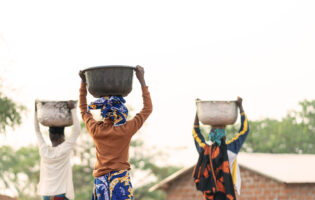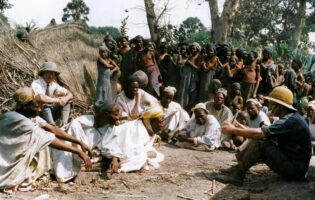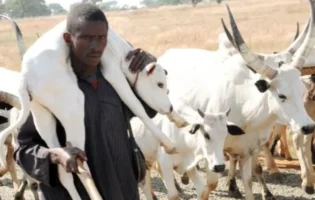Christine* joined a Fulani community in West Africa four years ago out of love. She talks about her experience with the women who helped her integrate and to whom she wants to introduce true love, the love that comes from God.
“Love is patient, love is kind. It does not envy, it does not boast, it is not proud. It does not dishonour others, it is not self-seeking, it is not easily angered, it keeps no record of wrongs. Love does not delight in evil but rejoices with the truth. It always protects, always trusts, always hopes, always perseveres.” 1 Corinthians 13:4-7.
Sébo was the first to try to communicate with me in Fulani. She would sit next to me and speak to me in very simple sentences punctuated by “A famii?” And of course, I didn’t understand a word of it. So, she repeated the sentences in all sorts of different ways until I shouted out, “I’ve understood!”
When I understood a sentence, she continued with a new one. It was thanks to her perseverance that we were able to have conversations. My first conversations in Fulfulde! She was the first person to really want me to understand and learn her language. That really touched me.
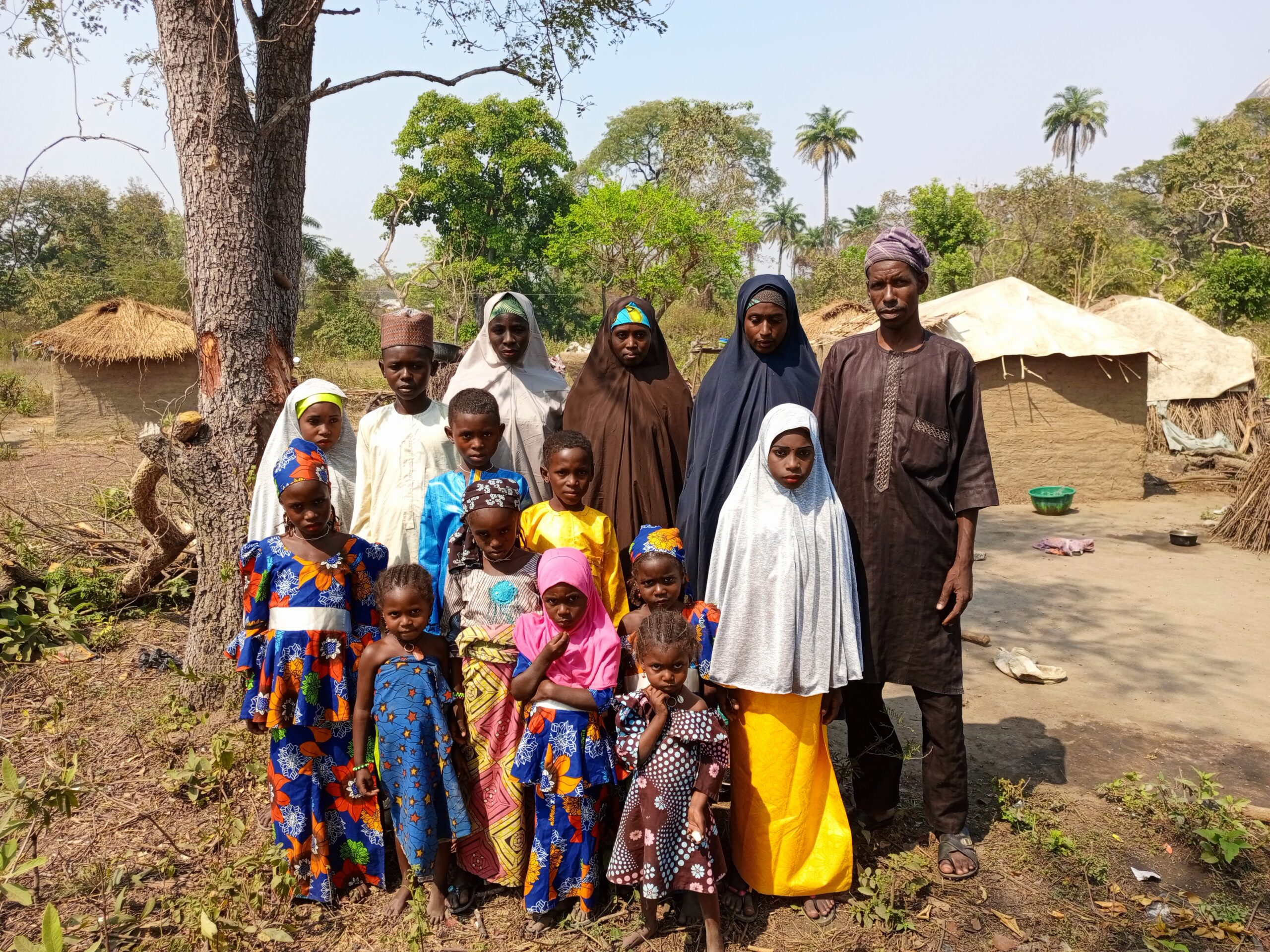
During one of these conversations, Sébo said to me: “They call me Sébo but that’s not my real first name, it’s Naima*”. She then explained: “The others call me Sébo because I’m the seventh girl in my family!” I laughed and said, “So I’m Sébo too!” She replied: “You must have misunderstood! Then she explained again why she’s called Sébo. I insisted, saying: “I’m Sébo too!” I told her the names of my six sisters. To which she replied: “Ah! You’re Sébo too! We’re Sébo!” When I arrived, I was given the name Fatime, but I could also have been called Sébo, because I really am the seventh daughter in my family.
The rest of her family found it hard to believe that I could really be Sébo, telling me: “White people have small families!” So, I showed them a photo of me and my family. I said to them: “See the baby there? That’s me!”
I met Sébo very quickly, shortly after my arrival in the Fulani community. When I met her, she had already been married for four years and didn’t yet have any children. This situation was difficult for her. So, I went with her to hospital, where she was prescribed several treatments that led to pregnancy. Sébo gave birth to a baby girl.
The Fulani celebrate births with a feast on the eighth day, known as the baptism ceremony, because that’s the day the child receives its first name. This took place at Sébo’s parents’ home in the bush, 8 kilometres from my home. That was when I discovered this very welcoming family. As I didn’t have a car, I cycled there every week. I was always warmly welcomed. I’d sit on their mat and we’d have a chat. Her parents were just as gentle and kind to me as Sébo, and just as keen to teach me Fulani. In this context of almost total immersion, I continued to learn the language while immersing myself in their culture.
They really welcomed me into their family. An example of that came one day when I was with the last two daughters of the family. We were walking in the bush when a Fulani man on a motorbike stopped. He looked at me with astonishment and insistence, frowning. Then he said, “Who’s that?” Sébo and Dèmo replied: “She’s our sister! He retorted: “Is she Fulani?” The immediate response was: “Yes, she’s Fulani!” So, he spoke to me and asked what I was doing there. I told him, “I’ve come to visit their father’s yard”. The sisters immediately took me back, saying “Our father” while staring at me. When the man left, Dèmo said to me: “Hey! He’s your dad too! Isn’t he? He’s not just ours!”
Many months later, during a rather stressful period, to help me with a fairly heavy workload, Sébo and her little one came to stay with me for a month. One particularly difficult morning I was struggling to motivate myself to take on the task in front of me. Sébo looked at me gently and said: “Shall we get down to work?” Under her gaze and her presence, I set to work with gusto. She gave me a lot of encouragement. And it turned out that this was the most beneficial period for me in terms of learning the language, because she spoke to me all the time in Fulani, which was of course our only common language. Repeating the same sentences over and over again helped me to learn a lot of vocabulary and to recognise and reproduce good syntax.
She took time away from me, she was there for me. The time she gave me when she was a wife and mother enabled me to make enormous progress in the language. Thanks to her, thanks to the time she gave me, I was able to have other exchanges in Fulani with other people. What a joy to finally be able to understand and be understood!
To thank her for her help, I gave her a mobile phone with an application for singing Christian songs in Fulani. I didn’t know if she’d be interested, so I just asked her. I played her the first song, which says: “Jesus loved me, he loved me so much that he died for me. He died for me at Golgotha. Jesus loved me so much that he died for me”. As she listened, a gentle smile came to her lips and her face lit up. Putting her hands over her heart, she said to me: “Fatime, this song is so sweet to me.” I played her others and her joy seemed to increase with each new song. I pray that the Lord will use these songs in her own language to speak to her heart. May the Lord transform Sébo’s life and call her to Himself.
*Names changed for security reasons. This article was first published by SIM France-Belgium in French.
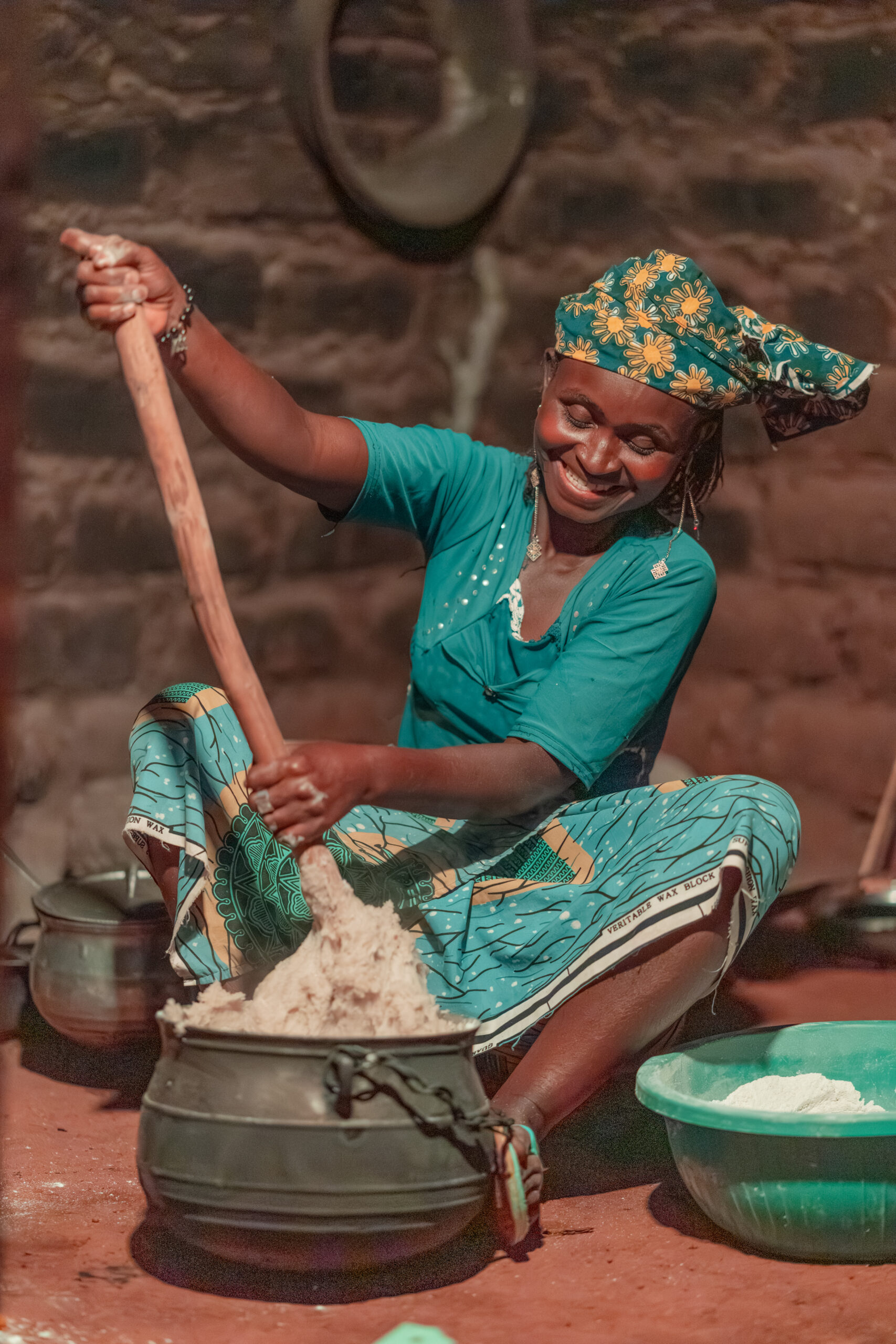
Pray With Us
- For Sebo, who has had some Christian influences in her life: that she will have the courage to let Jesus make His place in her. And that she may realise that accepting Jesus will not cause her to lose her identity but that, on the contrary, she will find her identity in Him alone. May the belief that to be Fulani is to be Muslim be abolished in her heart.
- For Christine to be able to continue her ministry among the Fulani, serving the people she loves and showing them the love of Jesus and what it means to be a Christ follower.
- For peace in the region and harmony between people groups so that the gospel of Jesus Christ can take root and flourish.

